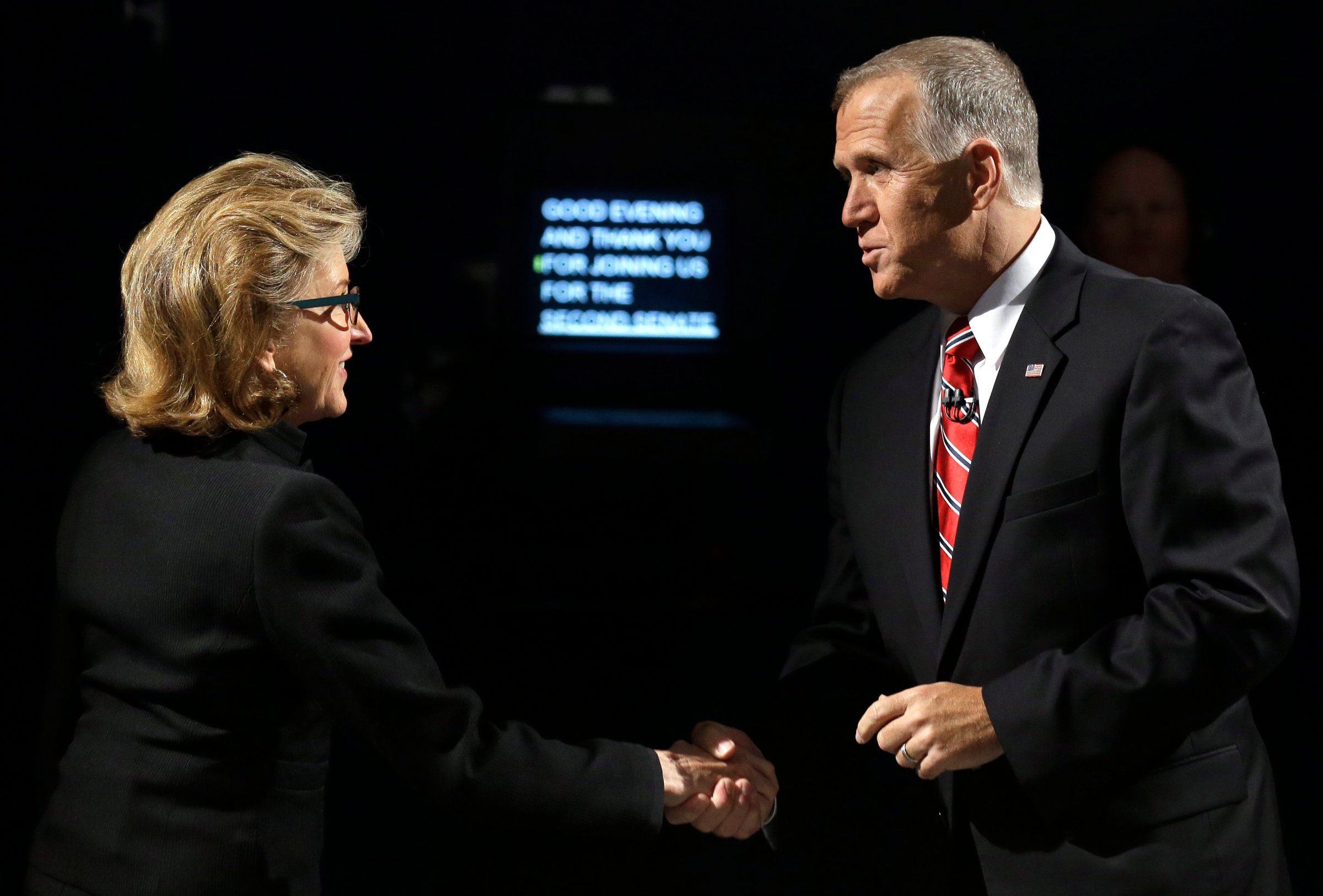
Millions of votes have been cast, the last ads have been cut, and there’s barely a household that remains blessedly untouched by the fight for the U.S. Senate. At some point, there is nothing left to do but wait. So with Election Night days away, the two parties’ top Senate strategists gathered Thursday in Washington to preview the drama that will unfold.
Much of the sparring between Rob Collins, executive director of the National Republican Senatorial Committee, and Guy Cecil, his counterpart at the Democratic Senatorial Campaign Committee, involved the ritual scramble to manage expectations. (Yes, we know both sides are optimistic about their chances—at least publicly, anyway.) But some big-picture themes emerged from the spin session between two parties’ top strategists. Here are four takeaways:
A tale of two frames
If Republicans retake the Senate, they have Barack Obama to thank. The GOP’s strategy in the battleground states was to make each election a referendum on the President, tying vulnerable Democratic incumbents to the policies of a chief executive whose approval ratings have sagged into the low 40s. “We have framed it through the prism of a group of incumbents voting with the President more than 90% of the time,” Collins said.
In contrast, Democrats have sought to localize these races, framing the contests as a choice between two candidates. “It’s clear the Republicans want to nationalize” the elections, Cecil said. “And it’s clear the Democrats want to make it about the two people on the ballot.”
Candidates matter
Inside the party committees and out, Republicans are gushing about their slate of Senate candidates this cycle. For the first time since 2008, no incumbent GOP Senator was toppled in a primary this year. That means no Todd Akins, no Sharron Angles—no challengers whose verbal missteps or outré positions dented party candidates up and down the ballot. “This is the best recruiting class in 30 years,” Collins said. Democrats are enthused by some of their recruits as well, especially Georgia’s Michelle Nunn, whom Cecil cited as the cycle’s best candidate.
And then there are the duds. Cecil called Nunn’s opponent, Republican businessman David Perdue, perhaps this year’s worst Republican candidate. Perdue’s competition for the ignominious title is Sen. Pat Roberts, the three-term GOP incumbent whose listless campaign cracked open the door for an unknown independent in blood-red Kansas. As for weak Democrats, Collins cited North Carolina Sen. Kay Hagan as a candidate whose shortcomings were “hidden behind a big pile of money.”
The bellwethers say plenty about each side’s path to victory
On Election Night, Collins said, the GOP will be looking at North Carolina and New Hampshire as harbingers. Both are close states where the Democratic incumbents—Hagan and Sen. Jeanne Shaheen, respectively—have led the whole way, only to see Republican challengers surge at the finish line. In contrast, Democrats are watching states like Alaska, Colorado, Iowa and Georgia. Democrats are even or behind in all of those contests, and just one—the Peach State—is a pickup opportunity for the President’s party. The bellwethers underscore just how much the map favors the GOP this year.
The money involved is massive
The two parties and their allied outside groups have carpet-bombed North Carolina, forking over more than $100 million on the Tar Heel State’s Senate contest. More than $55 million has been dropped on Alaska, a staggering sum in a state with cheap media markets and just 735,000 residents. And if Louisiana and Georgia go to runoffs? Expect the two sides to shell out another $35 million to $45 million apiece, Cecil predicted, if control of the Senate hangs in the balance. The DSCC has already reserved $10 million in television time in Louisiana. Which means the ad blitz may not let up until January after all.
More Must-Reads from TIME
- How Donald Trump Won
- The Best Inventions of 2024
- Why Sleep Is the Key to Living Longer
- How to Break 8 Toxic Communication Habits
- Nicola Coughlan Bet on Herself—And Won
- What It’s Like to Have Long COVID As a Kid
- 22 Essential Works of Indigenous Cinema
- Meet TIME's Newest Class of Next Generation Leaders
Write to Alex Altman at alex_altman@timemagazine.com